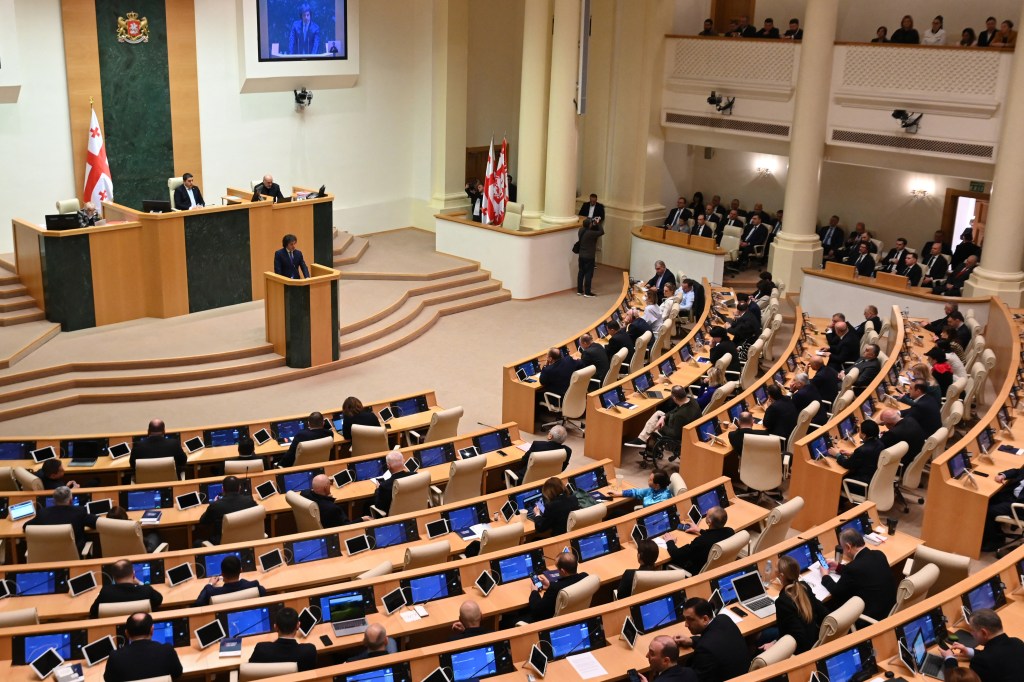Stockholm, April 4, 2024—The Committee to Protect Journalists is alarmed by the ruling Georgian Dream party’s Tuesday reintroduction into the Georgian parliament of a proposed “foreign agents” law previously shelved after mass protests.
“Georgian authorities’ revival of a bill that would smear media outlets as foreign-controlled is deeply concerning and utterly incompatible with their claim of aligning with European democratic standards and threatens press freedom ahead of the October parliamentary elections,” said Gulnoza Said, CPJ’s Europe and Central Asia program coordinator, in New York. “The ruling Georgian Dream party should withdraw the law and renounce any form of ‘foreign agent’ legislation if Georgia wants to succeed in its bid to join the European Union.”
The draft law, “On transparency of foreign influence,” would require nonprofits and media outlets receiving more than 20% of their funding from abroad to join a registry and provide detailed annual financial accounts, according to media reports and Georgia’s parliamentary website. Organizations that fail to register or to provide such data would be subject to fines of 25,000 lari (US$9,500).
A statement published on the party’s Facebook page said the bill is largely identical to a bill with the same name dropped by parliament in March 2023 following widespread protests. The only change is that the term “agent of foreign influence” has been replaced by that of “organization pursuing the interests of a foreign power.”
Georgian Dream, which controls a parliamentary majority, vowed in its statement to pass the law by the end of the current parliamentary session in June. The party’s majority is large enough to override Georgia’s president, who previously said she would veto it.
The proposed law, which was previously criticized by CPJ, is similar to Russia’s foreign agent legislation, except that it does not currently require media outlets to label their publications as produced by a foreign agent.
On Tuesday, Kyrgyzstan ratified a Russia-style foreign agents law requiring some nonprofit media organizations to register as “foreign representatives” and label their publications as produced or distributed by a foreign representative.
